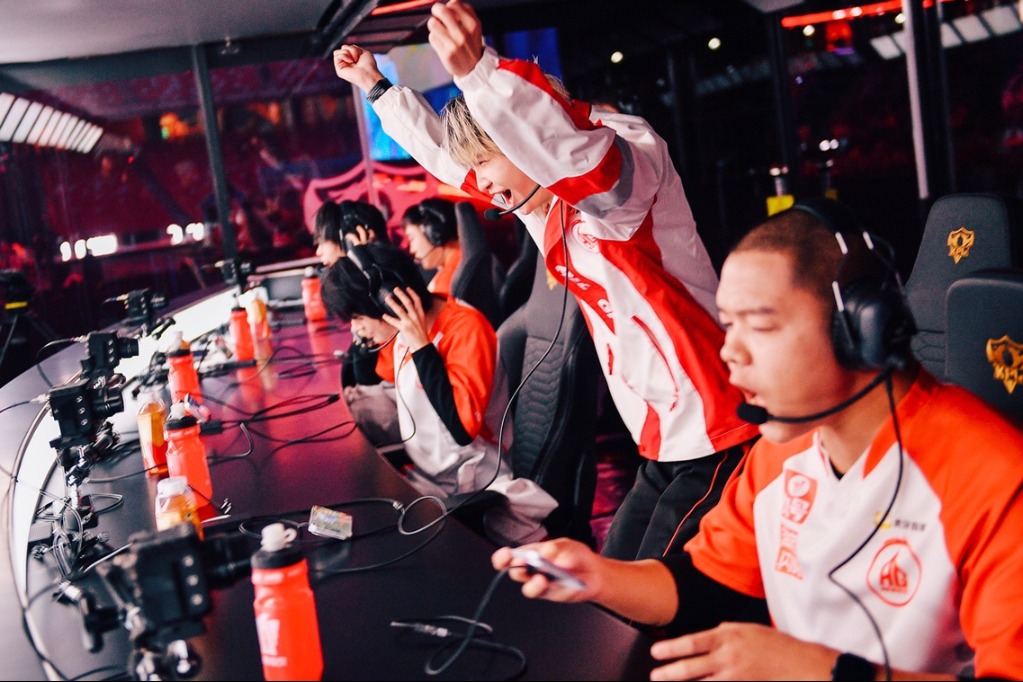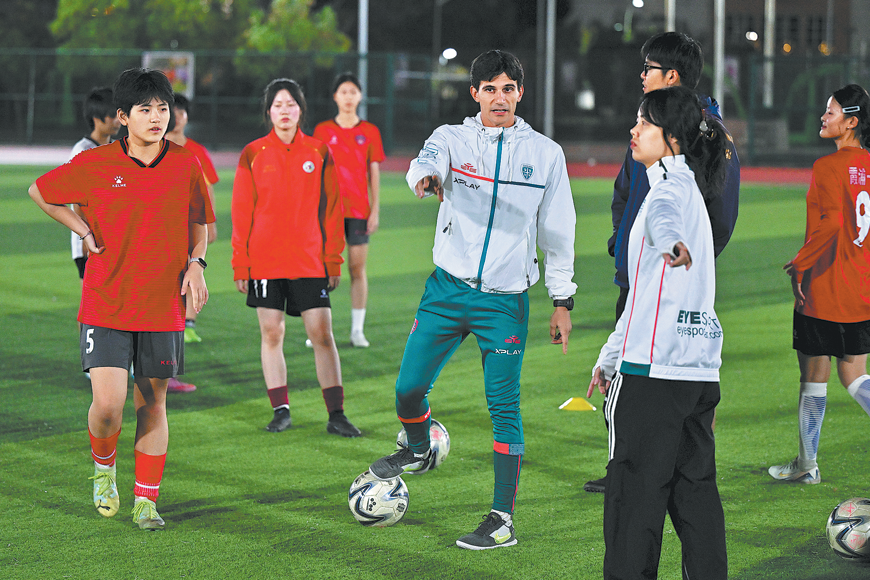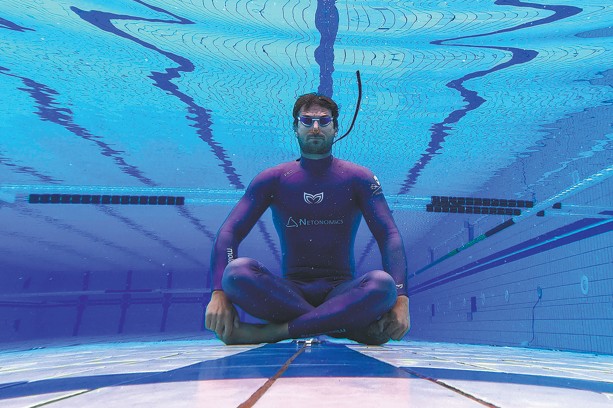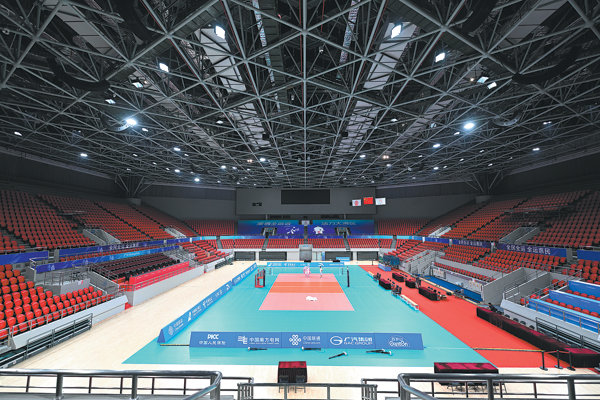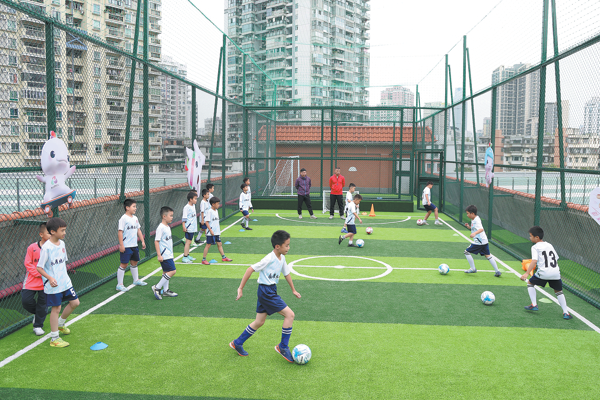Climate change thawing athletes' hopes of Games glory

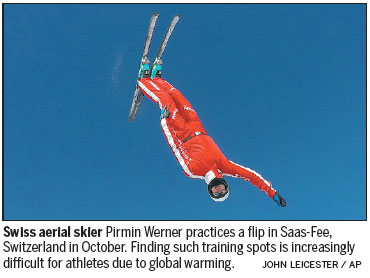 SAAS-FEE, Switzerland - The athletes' half-hour commute in the Swiss Alps - up two gondolas, then through a tunnel in the world's highest underground train to a glacier at 11,000 feet - served up daily grim reminders that global warming is threatening their line of work.
SAAS-FEE, Switzerland - The athletes' half-hour commute in the Swiss Alps - up two gondolas, then through a tunnel in the world's highest underground train to a glacier at 11,000 feet - served up daily grim reminders that global warming is threatening their line of work.
After exiting the train, they squelched through a field of grayish mud to reach shrinking snowfields scarred by new crevasses.
Occasionally, they heard the sharp roars of glacial ice breaking off in monster chunks, then echoing across the peaks where they trained jumps, tricks and turns for the Pyeongchang Olympics.
Another indicator of climate change's disruptive impact on winter sports: Many athletes had the letters "USA" emblazoned on their jackets.
Americans once had little need to swap continents to guarantee offseason access to snow. But warming is forcing athletes to hunt farther from home for wintry conditions, particularly just months away from an Olympics.
"Without the snow in the places in the States where it's normally cold, we have to travel over here and find a place on a glacier to get a couple of jumps off," said Jon Lillis, a world champion aerial skier.
"You see videos of people skiing on glaciers in the 80s and 70s, and half of that glacier doesn't even exist anymore."
Last year, the US aerials team stopped water training (launching off ramps to land in a pool) in Park City, Utah, in mid-October, then waited a month for snow that came late to the mountain that hosted the 2002 Winter Games.
The World Cup season began in China (Beida Lake, Jilin province), where the Americans competed not having set foot on snow in months. The results, not surprisingly, were dismal: not a single podium and only one top-five finish.
Lesson learned: This season, they uprooted to glaciers at Saas-Fee, Switzerland, and Ruka, Finland, for autumn training needed to be competitive at February's Winter Games in South Korea.
The hunt for offseason training spots like these is increasingly a scramble, and not just for the Americans. The hellishly named "Lucifer" heat wave that baked Europe in July and August wreaked havoc on teams' schedules.
France's moguls team cut short a July training camp on its home glacier in Tignes after a crevasse opened under the course, which this year had just one jump instead of the usual two because of a shortage of snow, said team member Ben Cavet.
"I always thought global warming was like your granddad going, 'Oh, I used to go and ski here 20 or 30 years ago and there was more snow,'" Cavet said in an interview. "But now we really are talking eight years. I can see a huge difference. Up on the glacier, now there's this huge cliff, you know like a big rock, that you couldn't even see before."
Elsewhere, shrinking glaciers in Austria, Italy and Canada also scuppered training plans.
Some athletes are wrestling with the moral dilemma of contributing to atmospheric pollution with their widening search for snow.
"We take planes to go overseas. We take cars every day to go training," said French snowboard-cross racer Pierre Vaultier, gold medalist at the 2014 Sochi Games. "We are not examples about how to decrease global warming."
The growing frequency of warm winters has hurt the financial health of the industry. A study commissioned by the Natural Resources Defense Council and the athletes' group Protect Our Winters found that skier visits in New Hampshire were 17 percent lower and ski-resort revenue was $54 million less in the "low-snow" winters of 2001-02 and 2006-07, as compared with higher snowfall winters of 2007-08 and 2008-09.
The increased frequency of warm-weather race disruptions on the pro circuits also is causing alarm.
Mild temperatures and lack of snow in Germany, Croatia and Michigan hit the 2015-16 season with multiple cancellations and venue changes. Last season began with events in Colorado and Alberta scrubbed because of lack of snow. This season's early Alpine event in Beaver Creek, Colorado, was run on almost all man-made snow that turned glassy in the warming sunshine.
Scientists warn more warming will render proven Olympic venues unsuitable, even with greater use of artificial snow-making.
Much has been said about the scarcity of snow around Beijing and Zhangjiakou, which will co-host the 2022 Winter Games, though officials have promised to make enough artificial snow.
Park City is in the mix for the 2026 and 2030 Olympics. The irony is not lost on Olympians who live there but had to travel the globe to train for Pyeongchang.
"In my career, a lot of times, it's been really easy to chalk things up to it being a bad winter," said US aerialist Mac Bohonnon. "But (warming is) undeniable. And the more I've traveled, the more I've seen that it's a pretty common theme wherever you go."
Associated Press
Most Popular
- Coordinated anti-doping effort in full swing
- Chengdu AG defends King Pro League title, sets world record at Bird's Nest
- Paving Serie A pathway for Fujian youths
- Croatian diver already eyeing next breathtaking achievement
- Making good use of the current, upgraded venues are greener than ever
- Celebrating the people's Games

















